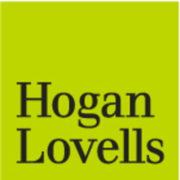EU Compliance: DSA Digital Strategy
The European Union's Digital Services Act (DSA) heralds a new era for digital services, blending innovation with accountability. As the EU charts its digital renaissance, businesses face both opportunities and challenges.

EU Digital Services Act: A Significant Move in EU's Digital Strategy
With the passage of the Digital Services Act, the European Union is making a major advancement toward digitalization (DSA). The DSA, which is a crucial component of the EU's digital strategy, requires all intermediate service providers—including online platforms—within the EU to comply with legally binding requirements, regardless of their location. The DSA is presently in force, with the majority of its requirements taking effect on February 17, 2024. Its compliance with respect to major internet platforms and search engines operating within the European Union will be monitored by the European Commission. All other intermediary services headquartered in their respective regions will be overseen by national Digital Service Coordinators (DSCs) in the meantime. The DSA will require non-EU establishments to designate a legal representation, and the competent DSC will be determined by their jurisdiction. This agreement gives intermediaries that are not in the EU a strategic option inside their jurisdiction. Member nations are currently attempting to designate their DSCs and grant them the required authority. Key information about DSC designations is provided in an interactive reference that has been made available to keep up with current developments.
The European Union's Digital Transformation: Unpacking the Digital Services Act (DSA)
The European Union (EU) is about to undergo a significant digital shift. The bloc is making a strong statement with the introduction of the Digital Services Act (DSA): integrity and innovation are equally important for the future of digital services in Europe.
The EU's progressive digital strategy is anchored by the DSA, which provides a thorough regulatory framework for online platforms. This is more than just a guide. It's a dedication to responsibility, openness, and creating a cutthroat online environment that values fair play. Businesses should be aware of the two sides of the DSA. Because all member states have the same regulations, there is predictability in the environment, which may make operational difficulties easier to handle. Nonetheless, the strict requirements of the act and the serious consequences of non-compliance highlight the necessity of careful observance.
The European Commission has seized charge of overseeing the compliance of major search engines and internet platforms, with plans to begin operations in full on February 17, 2024. However, the DSA's reach is wide-ranging and goes beyond the big tech companies. The national Digital Service Coordinators (DSCs) are now available. The vital responsibility of supervising intermediate services falls to these organizations, which speak for specific member nations. The DSA's on-the-ground success will be measured by their performance, commitment, and efficacy.
Businesses from outside the EU who want to enter the European market have unique opportunities and obstacles. They are required by the DSA to designate legal representatives, so selecting a jurisdiction is a strategic choice rather than only a bureaucratic one. Their market presence, approach, and, ultimately, level of success in the European digital scene can all be greatly impacted by this choice.
But there are several obstacles in the way of realizing the DSA's lofty goals. The pressure is enormous on DSCs. A unified digital market in the EU will be built on their reliable and efficient operation, creating an atmosphere that is ideal for digital innovation, growth, and sustainability. The selection, training, and empowerment of DSCs become vital given the possible differences in their efficacy throughout member nations.
A comprehensive interactive guide that highlights DSC designations has been released in recognition of the difficulties and complexities involved in this transition. The purpose of this tool is to help stakeholders and businesses navigate the complex environment created by the DSA.
To sum up, the Digital Society Agenda (DSA) embodies the European Union's dedication to promoting a digital landscape that integrates creativity and responsibility. We are at the start of a new era for businesses, stakeholders, and consumers alike, and the digital journey's roadmap is being carefully and strategically created.
Read More
Reduce your
compliance risks


